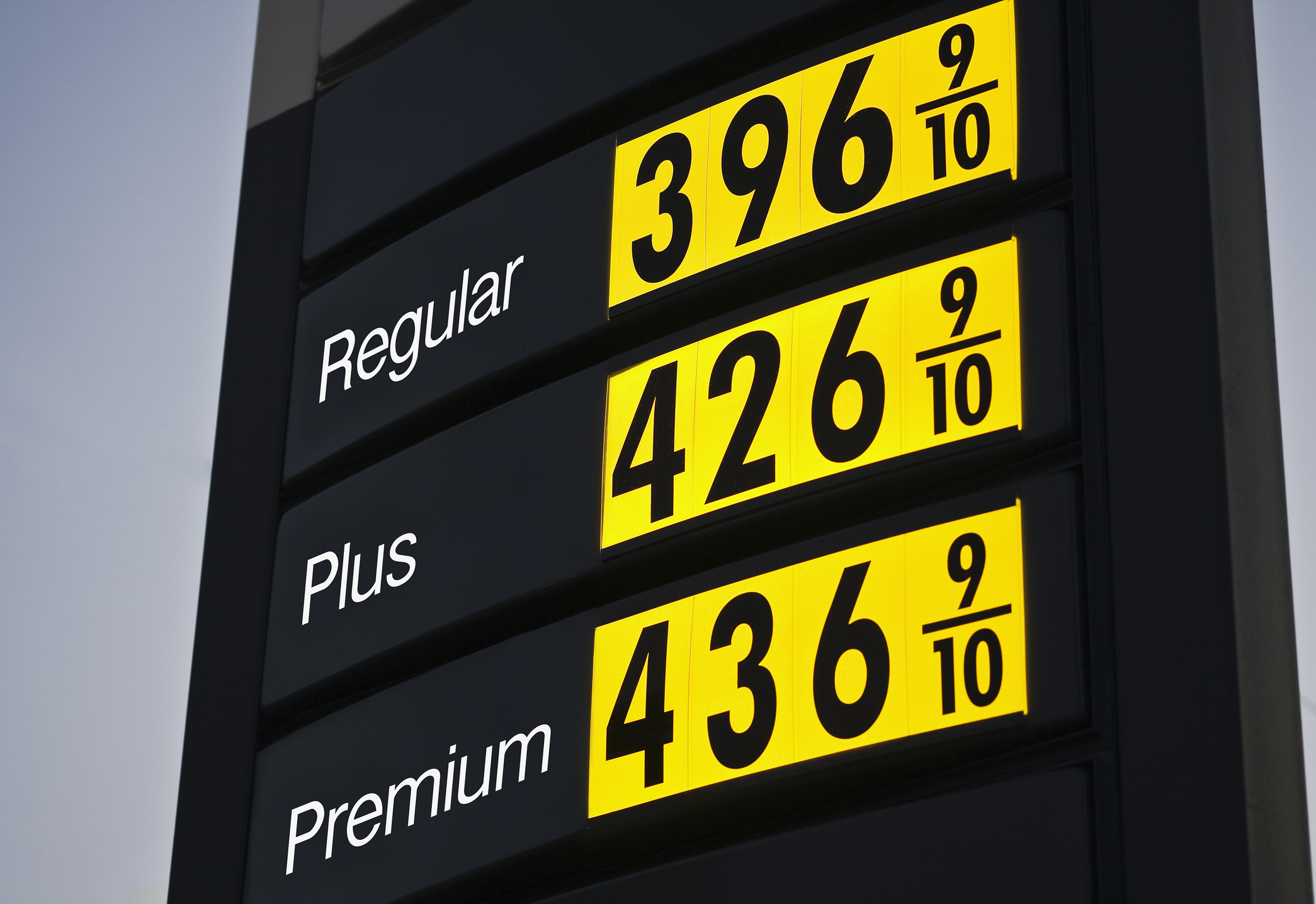Buying a Car as a Christmas Gift. Really?
Automakers promote this holiday fantasy in ads, but sales actually pick up -- and deals can be better -- after December 25.

Profit and prosper with the best of Kiplinger's advice on investing, taxes, retirement, personal finance and much more. Delivered daily. Enter your email in the box and click Sign Me Up.
You are now subscribed
Your newsletter sign-up was successful
Want to add more newsletters?

Delivered daily
Kiplinger Today
Profit and prosper with the best of Kiplinger's advice on investing, taxes, retirement, personal finance and much more delivered daily. Smart money moves start here.

Sent five days a week
Kiplinger A Step Ahead
Get practical help to make better financial decisions in your everyday life, from spending to savings on top deals.

Delivered daily
Kiplinger Closing Bell
Get today's biggest financial and investing headlines delivered to your inbox every day the U.S. stock market is open.

Sent twice a week
Kiplinger Adviser Intel
Financial pros across the country share best practices and fresh tactics to preserve and grow your wealth.

Delivered weekly
Kiplinger Tax Tips
Trim your federal and state tax bills with practical tax-planning and tax-cutting strategies.

Sent twice a week
Kiplinger Retirement Tips
Your twice-a-week guide to planning and enjoying a financially secure and richly rewarding retirement

Sent bimonthly.
Kiplinger Adviser Angle
Insights for advisers, wealth managers and other financial professionals.

Sent twice a week
Kiplinger Investing Weekly
Your twice-a-week roundup of promising stocks, funds, companies and industries you should consider, ones you should avoid, and why.

Sent weekly for six weeks
Kiplinger Invest for Retirement
Your step-by-step six-part series on how to invest for retirement, from devising a successful strategy to exactly which investments to choose.
Maybe you’ve seen the ad: Santa Claus places a tiny box on a snow-covered driveway, then the box morphs into a shiny new Lexus with a big red bow on top. It's quite the vision.
But is there any reality to this holiday fantasy promoted by automakers? Are people actually giving cars as gifts? The answer, says Brian Smith, vice president of marketing at Lexus: It happens -- sometimes. While December isn’t usually the top month for car sales in general, it has claimed the No. 1 spot for sales of luxury cars for seven of the past 12 years, according to data from car-shopping Web site Edmunds.com.
So should you rush out to purchase a new vehicle ahead of Christmas? Not if you're looking for the best price. That's because you can probably score a better deal the week after Christmas.
From just $107.88 $24.99 for Kiplinger Personal Finance
Become a smarter, better informed investor. Subscribe from just $107.88 $24.99, plus get up to 4 Special Issues

Sign up for Kiplinger’s Free Newsletters
Profit and prosper with the best of expert advice on investing, taxes, retirement, personal finance and more - straight to your e-mail.
Profit and prosper with the best of expert advice - straight to your e-mail.
In some cases, someone may already have decided to buy a new car near year's end and simply takes the opportunity to present it as a gift. But consumers usually buy cars in December for other reasons, Smith says. Leases coming to an end is one driving factor. Another is the availability of tempting year-end incentives. As the calendar draws to a close, dealers are trying to make as many last-minute sales as possible to meet or beat annual goals.
Thus the onslaught of sappy commercials. In reality, the weeks before Christmas are slow for sales of most vehicles, so manufacturers and dealers promote heavily in hopes of clearing out inventory before the end of the year to make room for new models, says Jessica Caldwell, a senior analyst for Edmunds.com. The ads are trying to get consumers in the buying spirit before the new year. Whether the sale comes before or after Christmas -- and whether or not the car is a gift -- is less important than the sale coming before January 1. Auto manufacturers spent about $1.7 billion on ads in November and December of 2013 -- $753 million of which was for holiday ad campaigns, according to marketing research firm Kantar Media.
The payoff from all of the holiday advertising seems to come right after Christmas, when sales pick up. People take advantage of time off around the holidays to go car shopping because they assume from all the ads they’ve seen that deals will be abundant, Caldwell says. The final days of this December are expected to be the busiest car-shopping period of the year, according to Edmunds.com. Sales are expected to be 78% higher the week between Christmas and New Year’s than the average week earlier in December. And of course, if the cars are being purchased during the final week of the year, then they wouldn't have appeared in driveways adorned with bows on Christmas morning.
Not that the image of a bow on a car isn't memorable. Higher-end brands including Lexus, BMW, Mercedes, Lincoln and Acura run all of those holiday-themed ads in December for a reason. But the reason is that the ads serve as a reminder that it’s the last chance of the year to get a deal on a new car, Caldwell says.
Regardless of whether you buy a car as a gift for yourself or for someone else, you will cut your costs by purchasing a 2014 model in 2014. You can save an average of 10% off the manufacturer's suggested retail price (MSRP) for a 2014 model-year vehicle thanks to year-end incentives and rebates, versus 6% off MSRP for 2015 model vehicles, according to Edmunds.com. To save even more, see our tips on how to haggle with a car dealer.
Profit and prosper with the best of Kiplinger's advice on investing, taxes, retirement, personal finance and much more. Delivered daily. Enter your email in the box and click Sign Me Up.

Award-winning journalist, speaker, family finance expert, and author of Mom and Dad, We Need to Talk.
Cameron Huddleston wrote the daily "Kip Tips" column for Kiplinger.com. She joined Kiplinger in 2001 after graduating from American University with an MA in economic journalism.
-
 QUIZ: Are You Ready To Retire At 62?
QUIZ: Are You Ready To Retire At 62?Quiz Are you in a good position to retire at 62? Find out with this quick quiz.
-
 Ask the Editor: Questions on Tax Breaks for Caregivers
Ask the Editor: Questions on Tax Breaks for CaregiversAsk the Editor In this week's Ask the Editor Q&A, Joy Taylor answers questions on tax breaks for caregivers
-
 Are You Making These Savings Mistakes?
Are You Making These Savings Mistakes?Avoiding these common mistakes can help you build a foundation of wealth while not leaving thousands of dollars on the table.
-
 10 Things You Should Know About Buying a Car Today, Even if You've Bought Before
10 Things You Should Know About Buying a Car Today, Even if You've Bought BeforeIf buying a car is on your to-do list, and it's been a while since you went shopping for a new one, this guide will help avoid any nasty shocks in the showroom.
-
 Get the Best Car Deal in Retirement: Here's the Trick
Get the Best Car Deal in Retirement: Here's the TrickPlanning on shopping for a new car this Labor Day weekend? Here’s how to haggle for a better price, even though you're retired.
-
 Five Ways to Save on Vacation Rental Properties
Five Ways to Save on Vacation Rental PropertiesTravel Use these strategies to pay less for an apartment, condo or house when you travel.
-
 How to Avoid Annoying Hotel Fees: Per Person, Parking and More
How to Avoid Annoying Hotel Fees: Per Person, Parking and MoreTravel Here's how to avoid extra charges and make sure you don't get stuck paying for amenities that you don't use.
-
 7 Gas-Saving Tips That Actually Work
7 Gas-Saving Tips That Actually WorkThese are gas-saving tips that will actually work for you and your car this year.
-
 Want to Lease an EV? The Tax Credit 'Loophole' for That Is Going Away Soon
Want to Lease an EV? The Tax Credit 'Loophole' for That Is Going Away SoonTax Credits If you are deciding whether to lease or buy an electric vehicle, here is what you need to know about how the EV lease tax credit works now that it will be eliminated under Trump's new tax law.
-
 Car Buying in a Topsy-Turvy Market
Car Buying in a Topsy-Turvy MarketYou need a new car? Good luck with that! What should you do? We've got some answers.
-
 Watch Out for Flood-Damaged Cars from Hurricane Ian
Watch Out for Flood-Damaged Cars from Hurricane IanBuying & Leasing a Car In the wake of Hurricane Ian, more flood-damaged cars may hit the market. Car prices may rise further because of increased demand as well.